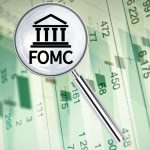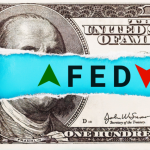Robert Herjavec is a Canadian entrepreneur who started multiple technology firms and starred on “Shark Tank”
Reviewed by Gordon ScottFact checked by Vikki VelasquezReviewed by Gordon ScottFact checked by Vikki Velasquez
At the age of eight, Robert Herjavec and his family fled to Canada from the communist regime in Yugoslavia. They left their native country with just one suitcase and $20 in their pockets. To make the most out of his opportunity to create a better life for himself, Herjavec developed a strong passion for working hard and it paid off.
Today, he is one of the most recognizable businessmen in North America. His company, Herjavec Group, is a Toronto-based IT security firm that has estimated annual revenues of $103.3 million a year. A large stake in the company was acquired by Apex Partners in 2021.
With an estimated fortune of $320 million as of 2024, Herjavec personally invested more than $16 million across 57 deals pitched on ABC’s popular reality television show Shark Tank. He also starred in Canada’s version of Shark Tank, “Dragon’s Den,” for the first six seasons of the show.
Below is an overview of how Robert Herjavec became a self-made multimillionaire.
Key Takeaways
- Robert Herjavec is a Canadian businessman with an estimated net worth of an estimated $320 million, as of 2024.
- Herjavec was born in Yugoslavia and raised in a life of poverty. When he was eight, his family moved to Canada.
- Herjavec has had a varied career, starting in the film industry before starting a career in technology, working for Logiquest of which he eventually became president.
- After being fired from Logiquest, Herjavec became an entrepreneur, starting a business, and then selling it before starting another one.
- From selling his businesses, primarily in the technology sector, Herjavec amassed millions in wealth.
- He is also known as a celebrity for being on the TV shows “Dragon’s Den” and “Shark Tank.”
Early Life and Education
Born in 1962, Herjavec grew up on his uncle’s farm in Varazdin, in what is now Croatia. Although he was born into poverty, Herjavec doesn’t speak badly of his childhood, saying that ‘‘it never seemed bad…you never know the situation you grow up in until you compare it to something else.”
During a CBC documentary of his life, Herjavec said, ‘‘I was lucky to grow up like that. We were poor financially but we were never devoid of spirit, or love, or support, or encouragement. In that little village, I was the most important guy to my uncle. What a great way to grow up!’’
Herjavec’s father was often arrested for speaking out against the communist system in Yugoslavia. In order to avoid future incarcerations, Herjavec’s father decided to move the family to another country in 1970. Herjavec was eight at the time. The family migrated to Halifax, Canada, by way of a port in Italy. In the end, they settled in a small suburb in Toronto.
For the first 18 months after they left Yugoslavia, Herjavec and his family stayed in the basement of a friend. His father managed to get a job at a factory in Mississauga, Ontario. There he earned roughly $76 a week.
When Herjavec arrived in Canada he had no understanding of English. However, in 1984 he graduated with a degree in English Literature and Political Science from the University of Toronto. In a promotional video for the University of Toronto, Herjavec explained that he made the right choice when he decided to study English Literature: “The ability to communicate is fundamental to what I do.”
In the same video, Herjavec revealed that he did not have much of a social life at university. According to him, he “just wanted to get in, get my degree, and get a job.”
Notable Accomplishments
Herjavec began a career as an editing assistant at a Canadian TV station after graduating from college. Because he could speak Croatian, he ended up as a field producer for the 1984 Winter Olympic Games in Sarajevo (back in Yugoslavia). Afterwards, he took on a role under Billy Jack creator Tom Laughlin, landing in the film business.
Herjavec later left the film industry to work at a technology company. As he once explained, ‘‘One day, my best friend at the time complained that he didn’t get this job with a tech company that was going to pay $30,000 a year. In 1985, that was a lot of money, so I decided to interview for it.”
Herjavec applied for a position at a technology company that sold computer software. Although he was not qualified for the role, Herjavec managed to get the job because he had offered to work for free for the first six months of his post. During that time, Herjavec learned as much as he could about the technology industry. To pay for his expenses, he waited tables at night until he received a permanent salary.
As time passed, Herjavec was promoted to different roles in the company. He ultimately became the president before being fired in 1990.
Note
Mark Cuban is the richest investor from “Shark Tank,” with an estimated net worth of $7.74 billion as of September 3, 2024.
Robert the Mogul
Following the termination of his employment at Logiquest, Herjavec started a business with Warren Avis, the founder of Avis Rent a Car. His reason for becoming an entrepreneur was that he “needed to pay his mortgage.”
In a 2012 interview with Inc. Magazine, Herjavec explained, “I got fired! I was one of those guys who never wanted to start their own business. I never saw myself as a leader. I saw myself as a great No. 2. I just wanted to do a good job and make a little more money every year.”
Herjavec later sold his interest in that business for $60,000. Herjavec then started a technology business, BRAK Systems, on his own from his basement. The company quickly became the largest Internet security firm in Canada.
It was acquired by AT&T, Inc. (T) in 2000 for $30.2 million. After the acquisition, Herjavec took on the role of Vice President of Sales at another computer business called Ramp Network. The company was shortly sold to Nokia for $225 million.
In an effort to spend more time with his wife and children, Herjavec took a break from his career for a few years. In 2003, he started a new venture called the Herjavec Group. The company provides information security services to other companies and has grown its annual sales to an estimated $103.3 million a year. A large stake of the firm was purchased in 2021 by private equity group, Apax Partners. Herjavec maintained a significant stake and his role as CEO.
Robert the Investor
In 2006, Robert Herjavec became a household name in Canada after he starred in the hit reality television series, “Dragon’s Den.” On the show, businesses would pitch an investment opportunity to a panel of investors with the hope of making a deal with at least one investor. Herjavec starred on the show for six seasons.
Later, Herjavec later became an investor in the American version of the show, “Shark Tank.” Over his time on “Shark Tank,” Herjavec has invested more than $16 million in several small businesses. In 2023, he announced that he is joining “Shark Tank Australia” and returning to “Dragon’s Den.” As of 2024, he is still a judge on both series.
Is Robert Herjavec Croatian?
Robert Herjavec was born in Varazdin, Croatia, which at the time was part of Yugoslavia. His family moved to Canada when he was young and he is now a Canadian citizen.
What Is Robert Herjavec’s Net Worth?
Robert Herjavec’s net worth is estimated to be $320 million as of 2024. He amassed his fortune by starting technology companies and then selling them.
Who Acquired Herjavec Group?
In 2021, private equity firm, Apax Partners, acquired a large stake of the Herjavec Group, with Robert Herjavec maintaining a large stake and his position as CEO.
The Bottom Line
Robert Herjavec made his fortune in the technology industry. After being fired from his job in the 1990s, Herjavec started a few businesses on his own out of desperation.
He eventually sold his stakes in those businesses for millions of dollars. Herjavec has since become a television personality and has invested several million dollars in small businesses in the United States and Canada.
Read the original article on Investopedia.



